Homeschool science labs usually require common household objects. But sometimes it can be a hassle to assemble what you need if you’re not planning ahead! So a great homeschool mom hack is to create a homeschool science labs bin as you as you start homeschooling and add to it as you go. That way, you’ll always have those random items available when you need them.
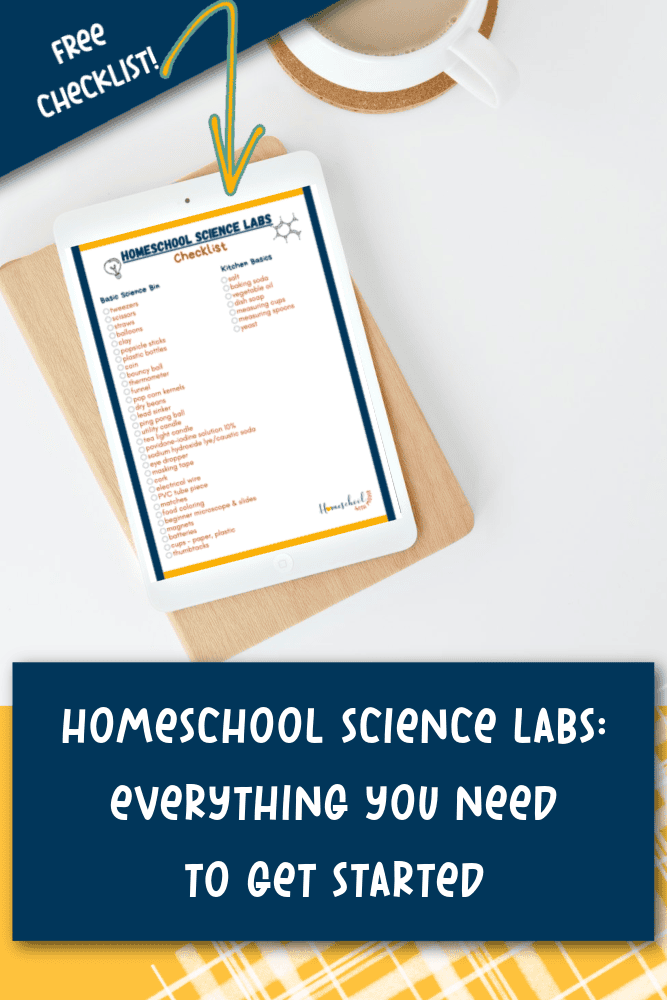
My posts contain affiliate links.
What are homeschool science labs
No matter which curriculum you choose for your homeschool science, you’ll likely end up doing labs sooner or later.
Some families love science labs and might do multiple hands-on activities a week! Others do them sporadically. It really just depends on your homeschool style. But sometimes it also depends on whether or not you have the right materials on hand.
By creating a homeschool science labs bin, you’re more likely to include these hands-on activities because your job just became a whole lot easier.
I’ll include some pictures throughout this post so you can see what’s typically in our science bin – and how unbeautiful it is! Seriously, this is not a Pinterest-perfect science bin. But it’s always stocked when we need it.
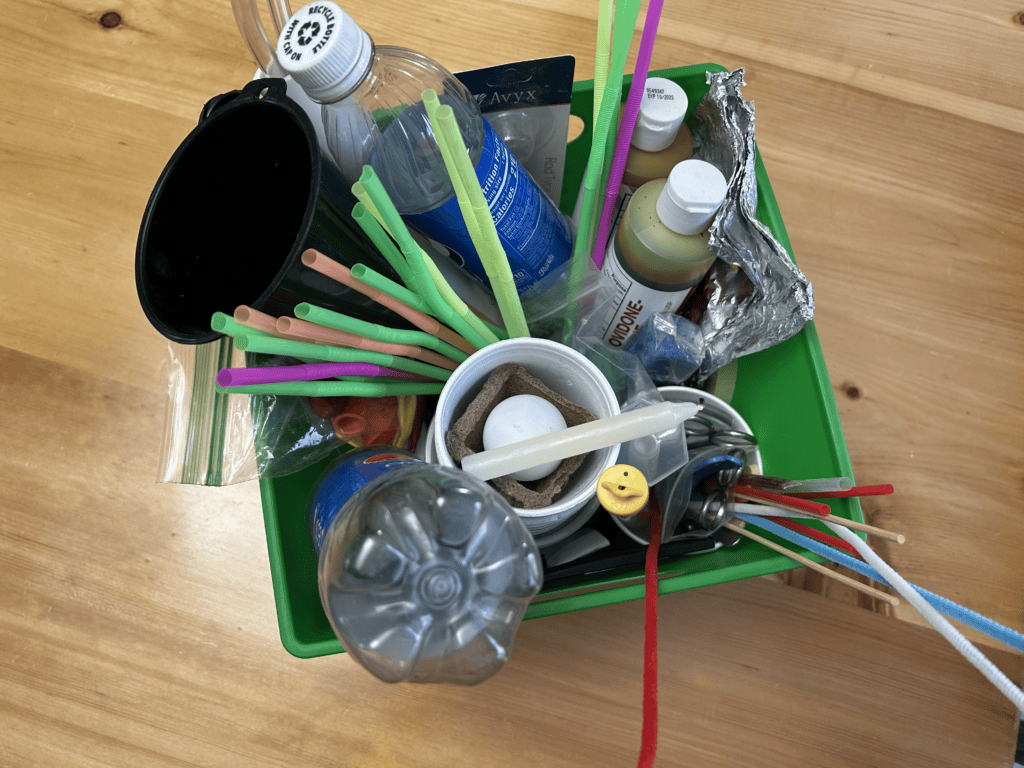
We’ve used various science programs throughout the years. From CrossWired Science to unit studies to Answers in Genesis resources in the early years to mainly Apologia science courses (in addition to Friendly Science or the 101 Series) in middle school and high school, we’ve tried a lot! And they all include labs at some point.
Science labs are a great opportunity for your child to see what they’re learning. For example, instead of just reading about density in their science book, isn’t it better to try an experiment where they keep adding salt to their water and eventually the egg will float instead of sink? That’s density in action – in real life!
Using science labs is what makes science come alive for kids. And maybe because of the lack of hands-on science activities during my own education is why I’m not a science lover at heart. In fact, it’s one of my least favorite subjects to teach.
Listen to Episode 306
Here’s episode 306 of the Homeschool with Moxie Podcast.
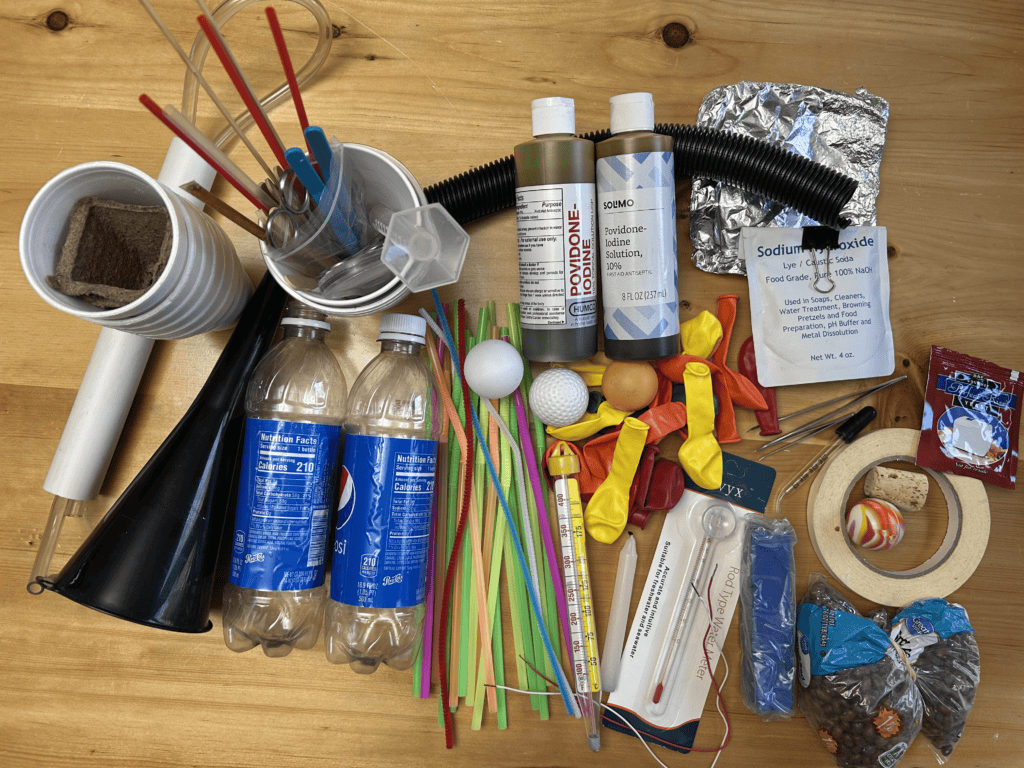
What do we need for homeschool science labs
Many homeschool science labs require normal household objects, but it’s really hard to gather copper wire, a magnet, and some molding clay while you’re also homeschooling three kids and wrangling a toddler.
So, that’s why assembling a homeschool science labs bin ahead of time is a great homeschool hack. And I’ll show you some pictures of mine, proving that it doesn’t need to be pretty to do the job! You just need to keep it where you can always find it. And because some of these items may not be safe if little hands get into it, you’ll want to store it in a safe location too.
Now, your science program or book will hopefully have a list for you of what’s required for that year of study. Go ahead and purchase those items before the year starts and keep it all in your bin.
But over the years, we’ve acquired many of these common items that you’ll probably want to have on hand too. I’ll list some here, but go ahead and download our handy Homeschool Science Labs Checklist below to start your own bin.
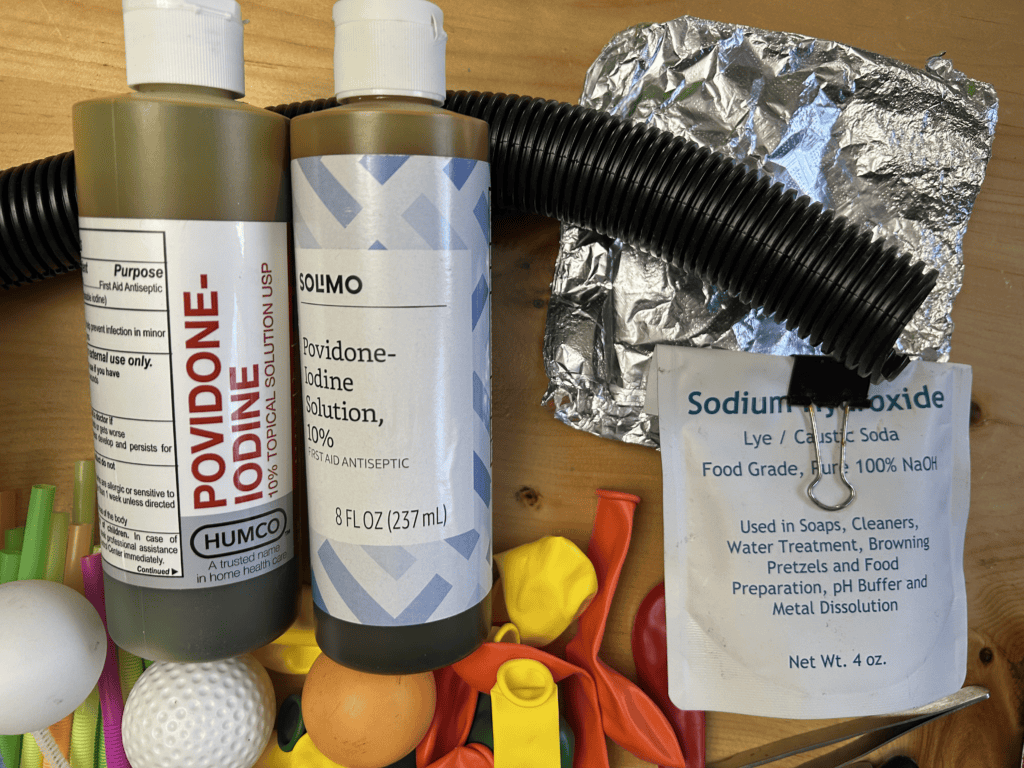
Common items:
- Magnifying glass
- Microscope & slides
- Measuring cups, spoons, ruler, thermometer, and scale
- Droppers & pipettes
- Tweezers & tongs
- Plastic test tubes & beakers
- Baking soda
- Vinegar
- Food coloring
- Dish soap
- Salt, sugar, & cornstarch
- Vegetable oil
- Bug catcher & net
- Field guide books
- Binoculars
- Magnets (bar, horseshoe, refrigerator)
- Small LED lights, wires, & batteries
- Copper wire & nails
- Goggles
- Gloves
- Aprons or old T-shirts
- Seeds & soil
- Alka-Seltzer tablets
- Yeast
- Hydrogen peroxide
In addition to these items, we picked up a microscope and slides at the thrift store years and years ago. It has served us well.
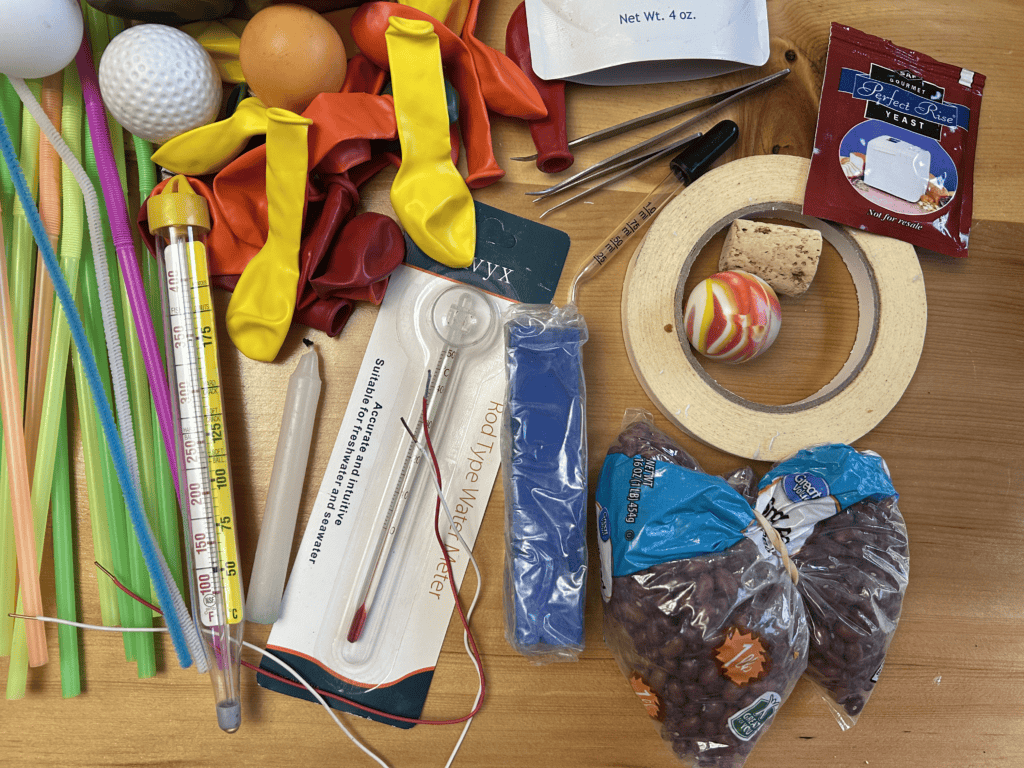
When we’ve needed specimens for dissection, we’ve used Home Science Tools. They also have loads of other items you can purchase for your bin. But I’ve found that I can purchase most inexpensively at the Dollar Tree, thrift stores, or the grocery store.
Download the Homeschool Science Labs Checklist
Grab this for free in our resource library!
